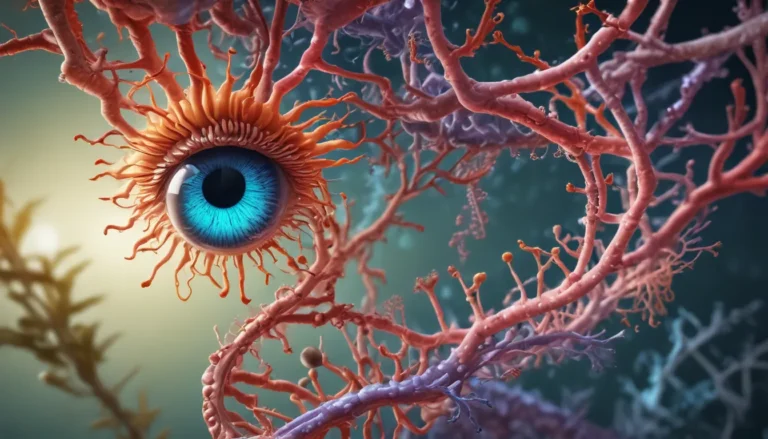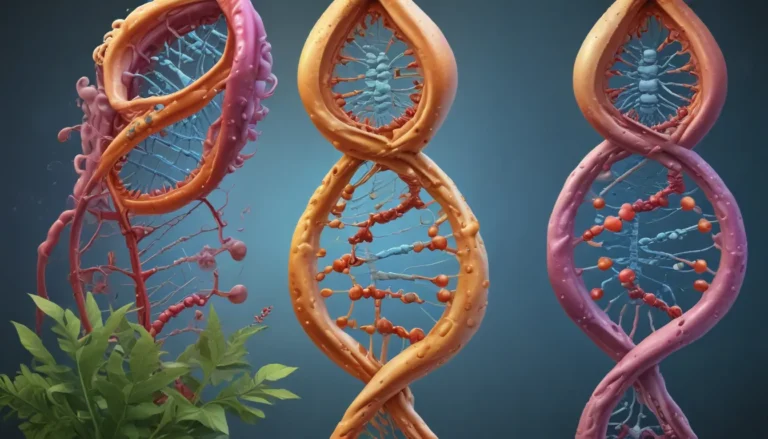A Note About Images: The images used in our articles are for illustration purposes only and may not exactly match the content. They are meant to engage readers, but the text should be relied upon for accurate information.
In the intricate world of immunology, the complement system shines as a superhero team within our bodies, collaborating with antibodies and immune cells to vanquish pathogens and uphold our well-being. Beyond the familiar roles of antibodies and white blood cells, the complement system emerges as a complex network of proteins and enzymes dedicated to bolstering our immune responses and safeguarding against invaders. Let’s embark on a journey to uncover 20 extraordinary facts about the complement system, unveiling its remarkable capabilities and pivotal significance in maintaining our health.
The Immune Sentinel: Unveiling the Complement System
The complement system stands as an indispensable fortress within our immune system, acting in concert with antibodies and immune cells to thwart infections and foreign substances from infiltrating our bodies. With over 30 proteins at its disposal, this complex network orchestrates a symphony of reactions to amplify our immune defenses.
A Multifaceted Defense Mechanism: Exploring the Complement System’s Marvels
-
Recognition and Destruction: The complement system excels in identifying and neutralizing pathogens like bacteria, viruses, and fungi, either by direct destruction or by tagging them for expulsion.
-
Initiating and Enhancing Immune Responses: Operating in both innate and adaptive immunity, this system kickstarts immune responses while amplifying their efficacy to combat specific threats effectively.
-
Harnessing Versatile Activation Pathways: Activatable through three distinct pathways – the classical, lectin, and alternative pathways – the complement system showcases adaptability in response triggers.
-
Effector Molecules Unleashed: Activation unleashes a plethora of effector molecules, from complement proteins to opsonins, anaphylatoxins, and membrane attack complexes, each augmenting immune responses uniquely.
-
Augmenting Pathogen Clearance: Essential for enhancing phagocytosis, the system facilitates pathogen engulfment by immune cells, thereby bolstering our immune defenses.
Unveiling the Diverse Roles of the Complement System
Beyond its role in immune protection, the complement system wields its influence in ushering tissue repair and regeneration processes, shedding light on its crucial contributions beyond defense mechanisms. However, dysregulation can lead to autoimmune disorders, underscoring the delicate balance required for optimal immune function.
The Complement System: A Nexus of Disease and Therapeutic Potential
Implicated in diverse disease processes, from inflammatory conditions to neurodegenerative disorders like Alzheimer’s disease, the complement system reveals itself as a target for therapeutic interventions. Such therapeutic modulation unveils novel strategies for managing immune-related disorders, harnessing the system’s untapped therapeutic potential.
Nurturing Interactions and Evolution: The Complement System’s Intriguing Realms
Interacting intricately with other immune pathways like the coagulation system and the cytokine network, the complement system exhibits profound biological diversity across species. This diversity, coupled with its role in promoting allergic reactions and combating parasitic infections, showcases the system’s multifaceted contributions to host defense.
A Glimpse into the Future: The Expansive Horizons of Complement System Research
As research on the complement system burgeons, scientists delve deeper into its complex roles and connections within our immune landscape. Unveiling new therapeutic avenues and biological insights, ongoing studies promise to unravel the complement system’s mysteries and drive innovations in immune-related therapies.
Journeying Through Immunology: Embrace the Wonders of the Complement System
Embarking on an exploration of the complement system unveils its intricate roles in immune orchestration and disease modulation. From recognizing pathogens to regulating inflammatory responses, this defense mechanism illuminates the marvels of our immune system. As we delve deeper into its complexities, the complement system emerges as a captivating biological marvel, underscoring its significance in bolstering our immune defenses.
Illuminating FAQs: Unraveling the Mysteries of the Complement System
- What is the complement system’s role in the immune system?
-
The complement system aids in identifying and eliminating pathogens, promoting inflammation, and supporting tissue repair within our immune defenses.
-
How does the complement system recognize and combat pathogens?
-
Through opsonization, certain complement proteins bind to pathogens, marking them for destruction by immune cells.
-
Are there disorders associated with complement deficiencies?
-
Yes, complement deficiencies can lead to disorders like hereditary angioedema or complement-mediated kidney diseases, presenting with recurrent infections and abnormal immune responses.
-
Can the complement system be targeted for therapeutic purposes?
-
Researchers are actively exploring ways to manipulate the complement system for therapeutic benefits, developing drugs to modulate complement pathways for treating various diseases.
-
What happens when the complement system is overactive?
- Overactivation of the complement system can result in excessive inflammation and tissue damage, observed in autoimmune diseases or specific medical conditions.
Embrace the Fascinating Realm of Immunology with the Complement System
Understanding the multifaceted world of the complement system enriches our comprehension of immune biology, unveiling pathways for novel therapeutic interventions and disease management. Join us in exploring the vast intricacies of immunology, where every discovery unlocks new potentials in safeguarding our health and well-being. Trust in our dedication to quality and authenticity as we journey together through the captivating landscapes of immunological sciences and the remarkable complement system.






